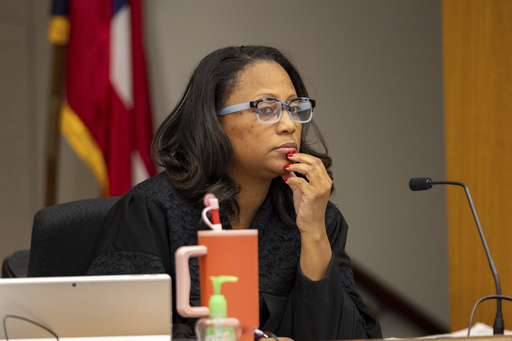
ATLANTA — During recent court hearings, Georgia officials contended that a pandemic-related agreement that has provided protection for certain individuals on death row should no longer be in effect. However, defense attorneys argue that the agreement is still applicable due to unmet conditions that remain in place.
The agreement established that executions would not be scheduled for a specific group on death row until six months had passed following the fulfillment of three criteria: the end of Georgia’s COVID-19 judicial emergency, the restoration of normal visitation protocols at state prisons, and the availability of a COVID-19 vaccine for “all members of the public.”
State lawyers maintain that these conditions have been satisfied. The judicial emergency was lifted in June 2021; however, defense attorneys point out that infants under six months old do not have access to the vaccine, thus not meeting the agreement’s criteria. Furthermore, they assert that visitation procedures within the state’s prisons have not returned to their standard practices.
Execution procedures in Georgia were paused in 2020 due to the pandemic, although death penalty cases continued to progress through the legal system, leading to prisoners becoming eligible for execution as they exhausted their appeals. A committee associated with a judicial task force addressing COVID-19 directed both defense lawyers and representatives from the state attorney general’s office to develop guidelines for safely resuming executions, culminating in an agreement reached in April 2021.
Judge Shukura Ingram from Fulton County Superior Court is evaluating whether the requirements surrounding the vaccine have been fulfilled, with the visitation matter set to be considered later. Attorney Sarah Brewerton-Palmer, representing defense lawyers, argued that the agreement’s language is clear and does not impose age restrictions on the vaccine availability. She emphasized that the state did not specify age limits for the agreement’s terms.
Countering this position, state attorney Logan Winkles claimed that in both a medical and legal context, the vaccine is available to infants since pregnant women can receive it and provide their newborns with antibodies. He noted that the agreement’s primary aim was to outline when it would be safe to initiate executions during a pandemic, asserting that this objective was achieved once the vaccine became accessible to individuals seeking it.
Judge Ingram remarked that the arguments presented require thorough consideration before she issues a ruling. The agreement exclusively pertains to individuals on death row whose requests for appeal rehearings were denied by the 11th U.S. Circuit Court of Appeals while the judicial emergency remained in effect. The agreement is set to last until August 1, 2022, or one year after all conditions are satisfied, whichever is later.
The legal dispute regarding this agreement emerged from a lawsuit associated with a scheduled execution date for Virgil Delano Presnell Jr. in May 2022. The Federal Defender Program, the organization representing Presnell, issued claims that the state violated the agreement since not all conditions had been met. Consequently, a judge from Fulton County Superior Court halted the execution just hours before it was to occur, and the Georgia Supreme Court later confirmed in December 2022 that the agreement constitutes a binding contract.
Prior to the pandemic, Georgia regularly moved swiftly to set execution dates once individuals on death row exhausted their appeals. Between 2010 and 2020, the state executed 30 individuals, with significant numbers occurring in consecutive years such as nine in 2016 and five in 2015. Since the implementation of the agreement, a number of individuals on death row no longer covered by it have become eligible for execution, including Willie James Pye, who was executed last March.
The attorney general’s office has refrained from making comments regarding the lack of execution warrants sought for individuals eligible but not covered by the agreement. Additionally, a spokesperson for the Department of Corrections did not clarify whether the agency is fully equipped and prepared to conduct executions at this time.

